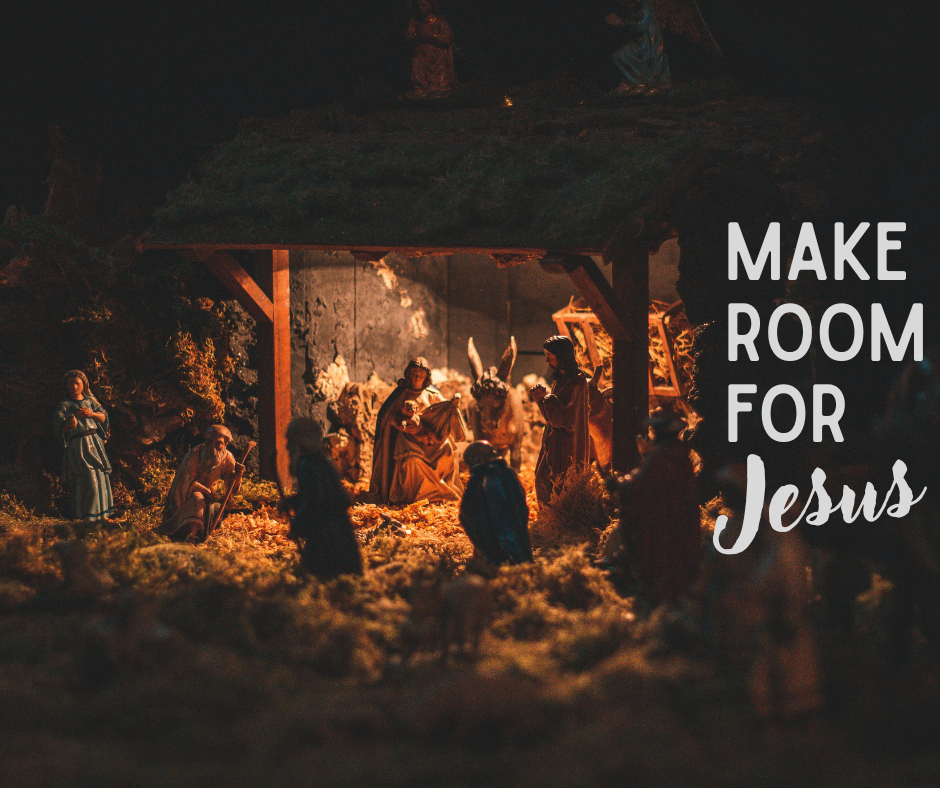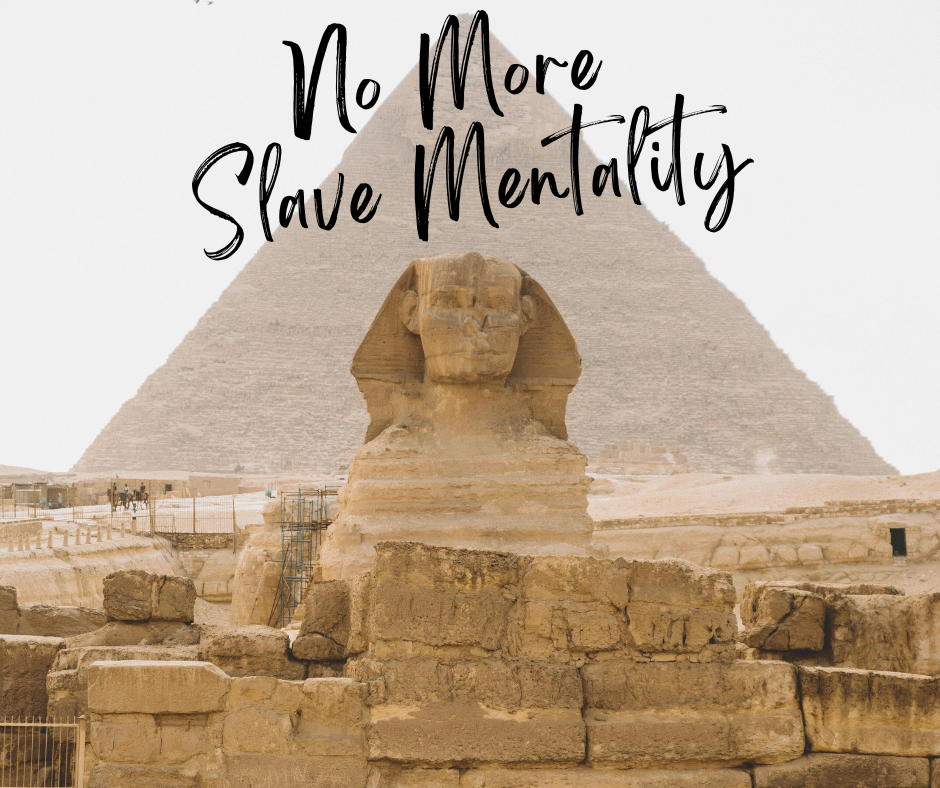Why Did Jesus Have To Die?
Listen to the Devotional Below

The True Meaning of Easter: Reconciliation Through Sacrifice
As Easter Sunday arrives each year, we're reminded of a story that has echoed through millennia - the death and resurrection of Jesus Christ. But why did Jesus have to die on the cross? What's the deeper significance behind this pivotal moment in history? Let's embark on a journey through time to uncover the meaning behind Easter and its relevance to our lives today.
The story begins in the Garden of Eden, where God created humanity to have a close relationship with Him. However, when Adam and Eve chose to disobey God, sin entered the world, creating a separation between humanity and their Creator. This separation wasn't just a minor disagreement - it was a chasm that seemed impossible to bridge.
Even in that moment of rebellion, we see God's love and mercy at work. He clothed Adam and Eve with garments made from animal skins, requiring the first sacrifice to cover their shame. This act foreshadowed a greater sacrifice to come, one that would ultimately reconcile humanity to God.
Fast forward to the time of Moses and the Exodus. God instructed the Israelites to mark their doorposts with the blood of a lamb to be spared from the final plague in Egypt. This Passover event was another pointer towards the ultimate sacrifice that would come through Jesus Christ.
The Old Testament system of animal sacrifices served as a temporary covering for sin, but it could never fully bridge the gap between God and humanity. Something more was needed - a perfect sacrifice that could once and for all reconcile us to God.
Enter Jesus Christ. Why did He have to die on the cross? The answer lies in understanding the nature of sin and its consequences. Sin isn't just about breaking rules; it's about damaging relationships. When we sin, we create walls between ourselves and God, much like how conflicts can create distance in our human relationships.
The penalty for sin is death - not just physical death, but eternal separation from God. This is where the profound love of God shines through. Instead of leaving us in our separated state, God chose to take on the punishment Himself through His Son, Jesus Christ.
Picture a courtroom scene where a murderer stands guilty, facing the death penalty. Now imagine the father of the victim stepping forward, offering to take the punishment in place of the guilty party. It seems unthinkable, doesn't it? Yet this is precisely what God did for us through Jesus. We were the offenders, yet God - the offended party - chose to pay the price for our reconciliation.
Jesus' death on the cross wasn't just about taking our punishment. It was about tearing down the wall of separation between us and God. When Jesus breathed His last on the cross, the curtain in the temple that separated the Holy of Holies from the rest of the temple was torn in two from top to bottom. This symbolic act demonstrated that the way to God was now open to all who would believe.
But the story doesn't end with death. If it did, Christianity would be no different from any other religion or philosophy. What sets the gospel apart is the resurrection. On the third day, Jesus rose from the dead, conquering death itself and proving His power over sin and its consequences.
The resurrection is the exclamation point on God's plan of reconciliation. It demonstrates that Jesus' sacrifice was accepted by the Father and that new life is possible for all who put their faith in Him. As the Apostle Paul later wrote, without the resurrection, our faith would be useless.
So what does all this mean for us today? It means that no matter how far we feel we've strayed from God, reconciliation is possible. The chasm that once separated us from God has been bridged by Jesus' sacrifice on the cross. We no longer need to live under the weight of guilt and shame. Instead, we're invited into a restored relationship with our Creator.
This reconciliation isn't based on our own efforts or the intensity of our faith. It's based entirely on what Jesus has done for us. Just as the Israelites during the first Passover were saved by applying the blood of the lamb to their doorposts, we're saved by applying the sacrifice of Jesus - the Lamb of God - to our lives through faith.
The message of Easter is one of hope, love, and new beginnings. It reminds us that no matter how dark our past may be, there's always the possibility of a fresh start with God. The resurrection power that raised Jesus from the dead is the same power available to transform our lives today.
As we reflect on the true meaning of Easter, let's not get caught up in familiar rituals or gimmicks. Instead, let's focus on the heart of the matter - God's incredible love for us and His desire for reconciliation. Let's allow the reality of what Jesus accomplished on the cross and through His resurrection to sink deep into our hearts and transform the way we live.
Easter isn't just about remembering a historical event. It's about experiencing the life-changing power of reconciliation with God. It's about embracing the new life that Jesus offers us. Whether you've known this story for years or you're hearing it for the first time, take a moment to consider what it means for you personally.
Are there areas in your life where you feel separated from God? Are there walls you've built up through sin or self-reliance? Today, you're invited to experience the reconciling power of the cross. You're invited to step into a restored relationship with your Creator, made possible by Jesus' sacrifice and validated by His resurrection.
This Easter, may we all grasp anew the depth of God's love for us and the lengths He went to reconcile us to Himself. May we live in the freedom and joy that comes from knowing we're no longer separated from God, but welcomed into His family as beloved children. This is the true meaning of Easter - reconciliation through sacrifice, leading to new life in Christ.
-----
Here's a 5-day Bible reading plan and devotional guide based on the themes from the transcription:
Day 1: The Garden and God's Love
Reading: Genesis 3:1-24
Devotional: As we reflect on the story of Adam and Eve in the Garden of Eden, we see both the tragedy of sin and the depth of God's love. Even in humanity's darkest moment, God's love shines through. He clothed Adam and Eve, covering their shame with garments made from animal skins - the first sacrifice pointing toward Christ. This act reminds us that God's love is not conditional on our perfection. He loves us even when we fail, and He takes the initiative to restore us. Today, consider how God has shown His love to you, especially in times when you felt unworthy. How can you respond to His unconditional love?
-----
Day 2: The Passover and Faith
Reading: Exodus 12:1-30
Devotional: The Passover story teaches us about the power of faith and obedience. The Israelites were saved not by the intensity of their belief, but by their simple act of faith in applying the lamb's blood to their doorposts. This foreshadows our salvation through Christ, where it's not the strength of our faith that saves us, but the object of our faith - Jesus, the perfect Lamb of God. Reflect on times when your faith felt weak. How does knowing that salvation depends on Christ's work, not the intensity of your faith, bring you comfort? How can this truth inspire you to step out in faith today, even in small ways?
-----
Day 3: The Cross and Reconciliation
Reading: Matthew 27:45-56
Devotional: The crucifixion of Jesus is the ultimate demonstration of God's love and His desire for reconciliation. The temple curtain torn in two symbolizes the removal of the barrier between God and humanity. Christ's sacrifice bridges the gap that our sin created. As you meditate on the cross today, consider the personal nature of this reconciliation. Jesus died not just for humanity in general, but for you specifically. How does this change your perspective on your relationship with God? What "curtains" or barriers might still exist in your own life that prevent full intimacy with Him?
-----
Day 4: The Resurrection and Hope
Reading: Matthew 28:1-10
Devotional: The resurrection is the cornerstone of our faith and the source of our hope. It proves that death is not the end and that God's power is greater than any force in this world. The women at the tomb experienced fear mixed with joy - a common reaction to encountering the divine. As you ponder the resurrection, what fears in your life need to be transformed into joy? How can the reality of the resurrection give you hope in your current circumstances? Consider sharing this hope with someone who needs encouragement today.
-----
Day 5: Living in the Power of the Gospel
Reading: Romans 8:1-17
Devotional: The gospel is not just about forgiveness of sins, but about a transformed life through the power of the Holy Spirit. We are no longer separated from God but are adopted as His children. This new identity should shape how we live each day. Paul reminds us that we no longer live according to the flesh but according to the Spirit. Reflect on areas of your life where you might still be living according to old patterns. How can you more fully embrace your identity as God's child? Ask the Holy Spirit to empower you to live out the reality of the gospel in your daily choices and relationships.

Making Room for Jesus
We all know the Christmas story, don't we? Mary, heavily pregnant, riding a donkey through the night. Joseph frantically knocking on door after door in Bethlehem, hearing "No vacancy!" at every inn. Finally, in desperation, they settle for a stable where Jesus is born among the animals. That same night, shepherds rush in after seeing angels, and wise men arrive with their gifts of gold, frankincense, and myrrh. It's a beautiful, touching scene we've carried in our hearts since childhood.But what if much of what we "know" isn't quite what the Bible actually says?
Read More
No More Slave Mentality
Life has a way of getting harder right when we think we're finally stepping out in faith. We convince ourselves that obedience to God should make things easier, smoother, more comfortable. But what happens when the opposite occurs? What happens when we take that leap of faith and suddenly the ground beneath us feels even more unstable?
Read More
Gratitude Is A Virtue Not A Feeling
When we think about gratitude, most of us wait for a warm fuzzy feeling to hit us. We expect goosebumps, a stirring in our hearts, or at least a momentary rush of appreciation. But what happens when that feeling doesn't come? What happens when life feels more like a pile of torn-up concrete and rebar than a smooth, well-paved road?
Read MoreStay Connected with Revive
Sign up for our newsletter to stay informed about upcoming events, sermons, and community updates. Don’t miss out on what’s happening at Revive Church—delivered right to your inbox.


